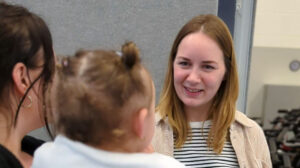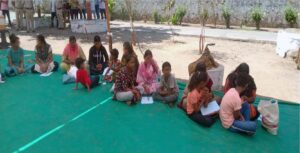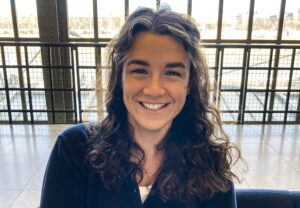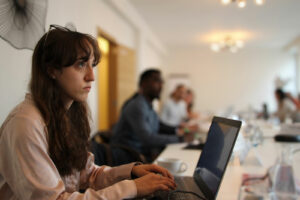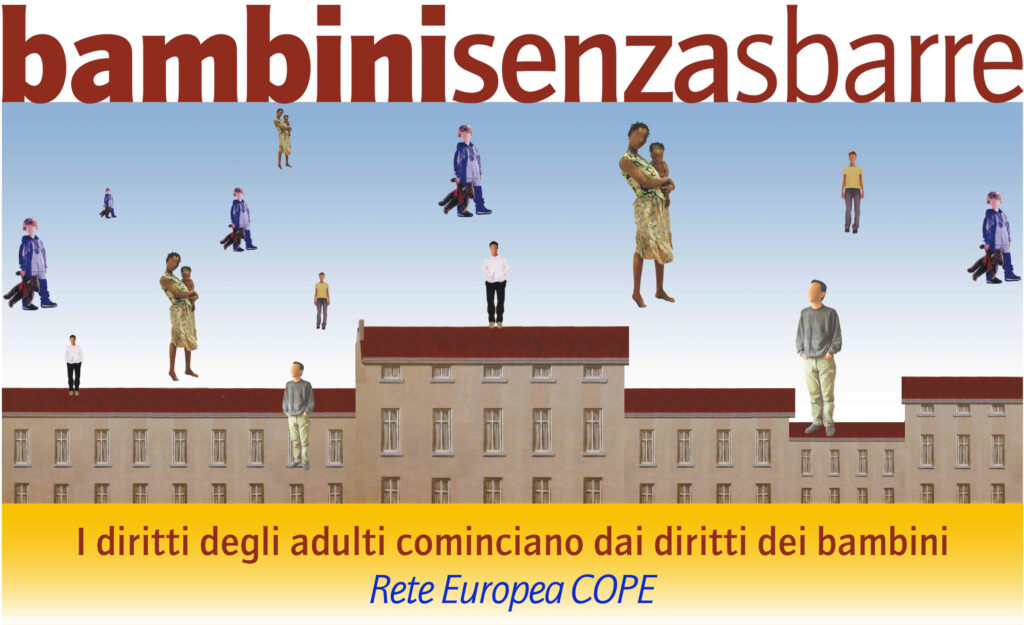After its success in Europe, the GWMD model has influenced similar efforts globally. For the first time in India, two structured, play-based Gala Bhet events were held. These initiative marked a significant step forward in strengthening parent-child connections within Indian prison environments, demonstrating how child-centered approaches can be integrated into existing frameworks.
The initiative was led by Prayas in collaboration with the Maharashtra Prison Department and Aangan Trust. Prayas is affiliated with the Tata Institute of Social Sciences (TISS) and has 33 years of experience working in the criminal justice space—especially with children and families affected by imprisonment. This experience and commitment laid the foundation for such meaningful initiatives to take place within prison settings. Aangan provided psychosocial support to children and parents before and after the Gala Bhet events. Aangan focused on enhancing the emotional quality of interactions through games and play. For the first time, they also brought in children’s voices, capturing their thoughts, feelings and expectations about meeting their parents.
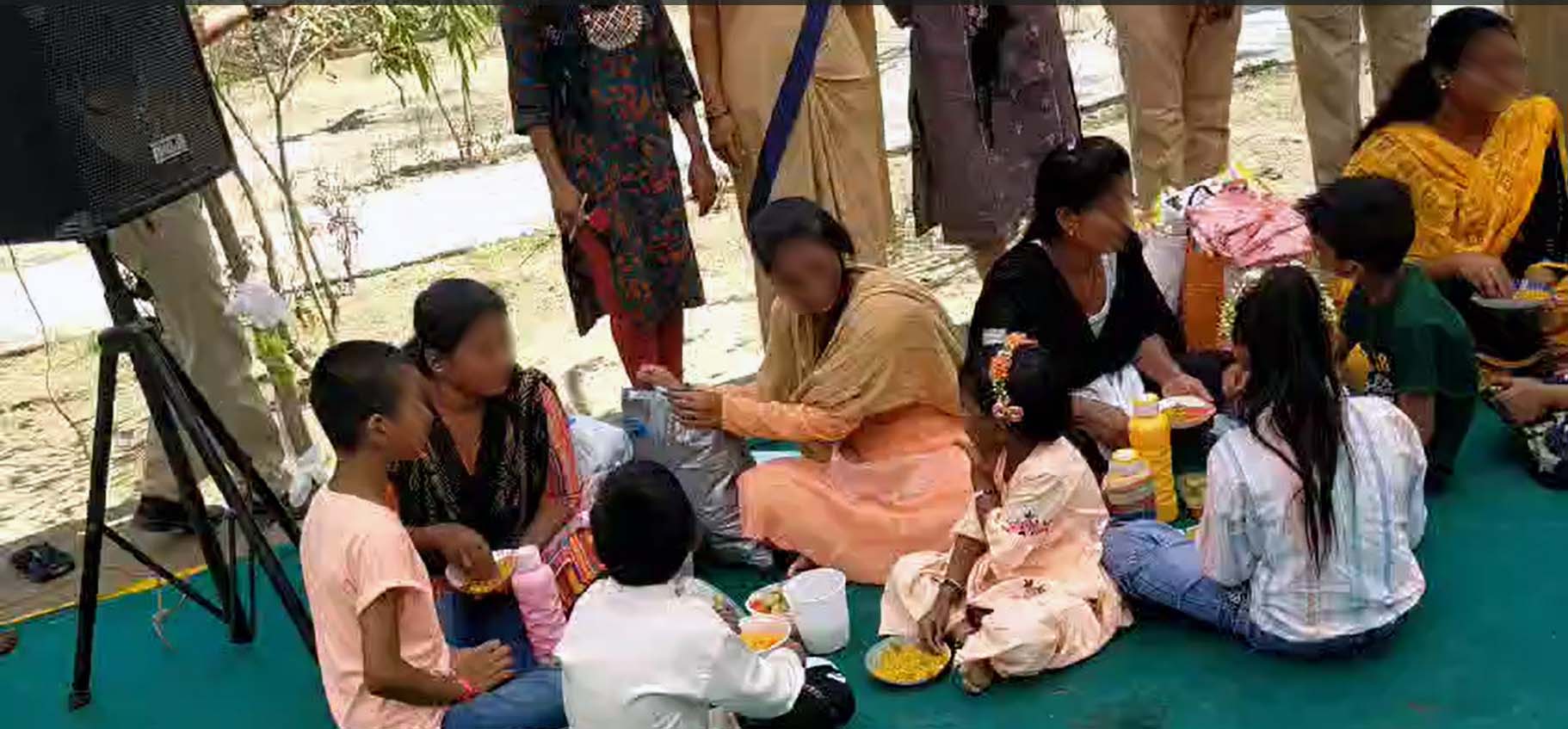
After close partnership with the COPE network, Aangan Trust became aware of the ‘Game with Mum & Dad’ (GWMD) initiative. GWMD is a project promoted and organised by COPE, based on the model developed by NGO Bambinisenzasbarre, which has been organising the project in Italy since 2015.
At the heart of COPE and GWMD is the drive to make proven models of good practice work for more children across the globe. GWMD aims to strengthen the bond between children and their imprisoned parents. The games represent the final stage of a long process, lasting several months, during which imprisoned parents, their children and family members are involved in a series of meetings and activities, supported by psychologists, educators and prison staff. The goal is to maintain and strengthen the child-parent relationship during the period of detention.
The Gala Bhet events which took place in India mark a special moment; they were first-of-their kind events which drew inspiration from the GWMD approach. These events were pitched as a moment to mark International Women’s Day for imprisoned women, facilitating meetings with their children in a meaningful way. The events took place in two prisons: Kalyan Adharwadi District Jail (March 7, 2025) – housing 150 undertrial women, 75% of whom are mothers —and in Mumbai Byculla Women’s District Jail (March 8, 2025) — housing 400 undertrial women, 75% of whom are mothers.
According to the Indian Prison Manual, every child below 18 years is allowed to meet their imprisoned mother or father for 20 minutes every 15 days, in a designated physical setting known as Gala Bhet (Gala meaning Hug and Bhet meaning meeting). These visits are often rare due to barriers such as long distances between where children live and the prison, lack of financial resources for travel, absence of an accompanying adult or a lack of dedicated child-friendly meeting spaces within prisons.
Additionally, 20 minutes is often insufficient for children and their parents to fully express their emotions and share their experiences, leading to strained relationships. This also poses additional challenges to temporary guardians, who may struggle to find the time and resources to facilitate regular visits. To address this, Prayas NGOs, which works on prison reform, successfully advocated for a Government Resolution (GR) that mandates group meetings between imprisoned mothers and fathers and their children every six months. This event allows parents and children to spend extended time together in a structured environment.
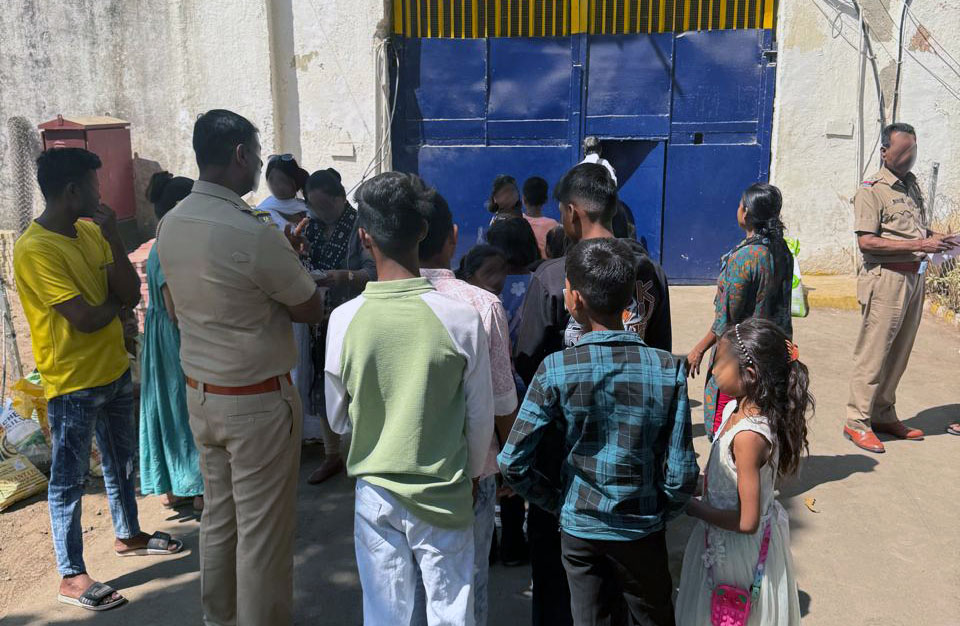
The event at Kalyan Adharwadi District Jail
On March 7, Prayas NGO, organised a Mass Gala Bhet in the Kalyan Adharwadi District Jail. This first event in India was attended by 26 children (23 children living in the community and 3 children residing with their mothers) and 15 mothers and temporary guardians or other relatives.
When children and mothers meet for the first after months of separation, this generates, as expected, great emotions. Typically, much of the meeting time is spent crying, which, although cathartic, hinders effective communication. To change this experience, Aangan Trust social workers conducted a pre-event session on March 6, 2025, engaging mothers in activities, such as the “Human Knot” (team building activities where team members form a circle, hold random teammates’ hands and untangle themselves without breaking their hold), “Mirroring” (consisting of mirroring the language, behaviour and even gestures of your interlocutor, prompting one to create empathy and feel more in tune with the person in front of you), and “Positive Affirmations” (regularly practising positive affirmations can lead to increased self-esteem, reduced stress levels and improved overall wellbeing).
During post-game discussions mothers were asked for input on the planned activities with children. Mothers suggested: “We want to write to our children, can you provide materials for that?” and “Please arrange the event outside so that children do not see our living conditions.”
Based on this feedback, Aangan Trust and Prayas NGO coordinated with prison authorities to arrange the event in an open space.
On the morning of March 7, Aangan trust staff professionals prepared the venue, welcomed the children on their arrival outside the prison and, before meeting their mothers, children were briefed to help them manage their emotions, especially first-time attendees. In fact, before these events, children, their caregivers and imprisoned mothers undergo preparatory sessions to emotionally equip them for the visit. Mothers are guided on how to communicate with their children, while children are given space to express their thoughts, expectations and concerns before the meeting.
They were given greeting options—”Hi-Five, Fist Bump, Hug or Hello”—to encourage warm yet comfortable interactions.
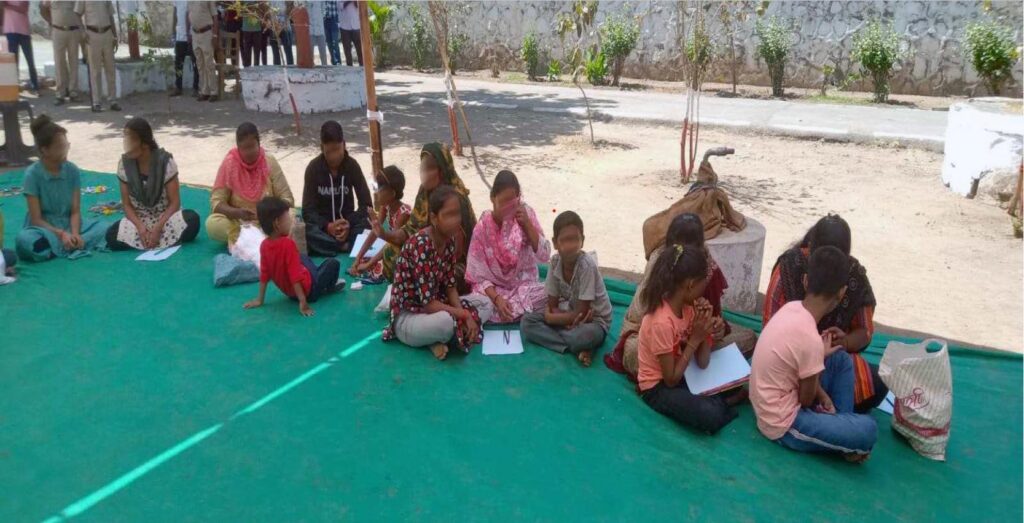
Five children opted for a hug, while others chose a simple high-five. Once entered, children played with lego, blocks and books while waiting for their mothers.
When the mothers arrived, families were seated in a circle and played interactive games like “Pass the Ball” or engaged in drawing and colouring preprinted pictures activities.
Authorities and NGOs provided nutritional snacks and fruits to families and children for lunch. Before the event ended each mother wrote a letter to her child, fulfilling their pre-session request. This moment was deeply emotional—pure love was shared through words and silence. After two hours, it was time for farewells. As discussed in the pre-session, mothers bid their children goodbye with a smile, reducing the distress of separation.
Mothers and children who took part shared some of their impressions of the day:
“Please organise these events regularly. This was the first time I met my mother in person.” – a child.
“I finally got quality time to talk with my mother, unlike in the usual short meetings.” – a child.
“Earlier, we would spend all 20 minutes crying, but today, we could actually talk.” – a mother
The Mass Gala Bhet in Mumbai
The second event (or Mass Gala Bhet) was held at Mumbai Byculla Women’s District Jail on March 8 and was attended by 42 children (40 from the community and 2 residing with their mothers) and 26 imprisoned mothers.
Coordinating and supporting 40 children required extensive efforts and a strong collaboration with caregivers. Aangan Trust liaised with caregivers, while Prayas NGO facilitated institutional children’s participation. A pre-event session was conducted with mothers, explaining the event’s importance, structured conversations and emotional impact. In addition a Guidance on emotional regulation was provided to help mothers manage their tears to better support their children.
Similarly to the Kalyan Adharwadi District Jail event, on their arrival, children were welcomed at the prison entrance and divided into smaller groups to ensure smooth facilitation. They were given color-coded wristbands and greeting choices (Hi-Five, Fist Bump, Hug). A play area was set up with hurdles, blocks and Legos. Groups were gradually escorted to the Gala Bhet venue. Once reunited, mothers and children painted together, reinforcing connection through art. Letters were exchanged, giving each family a tangible memory to cherish.
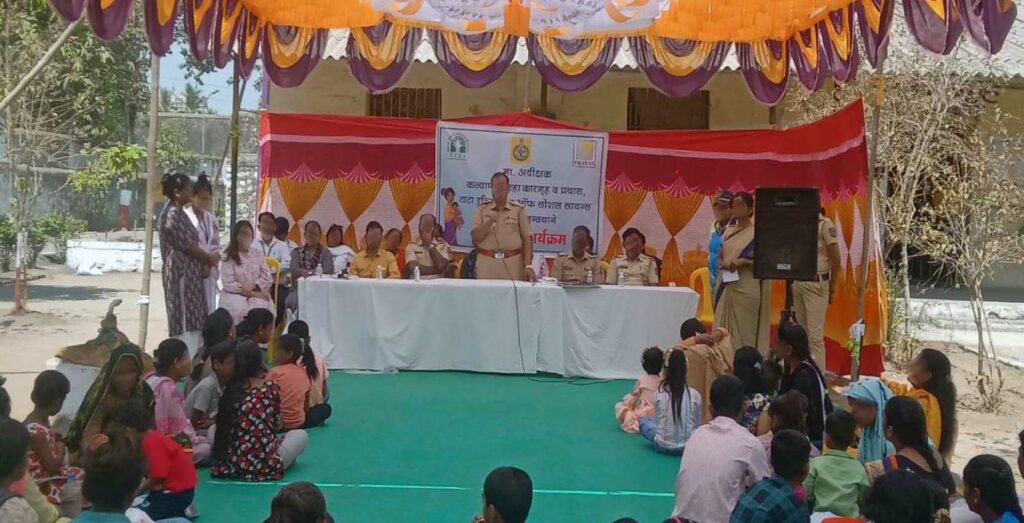
Before departure, snacks were distributed and, following the pre-event guidance, all mothers bid farewell with a smile, ensuring a positive closure.
These are some quotes from participants, collected at the end of the GWMD event:
“I felt happy spending time with my mother. After a long time, we sat together and drew.” – a child
“Seeing my children today makes me feel at peace. I can now endure my time here better.” – a mother
The success of the Gala Bhet events underscores the need for extended, structured and guided parent-child interactions in prisons. Pre-event briefings, interactive activities and emotional preparation significantly enhanced communication and bonding. Children and their imprisoned mothers were able to create lasting memories, strengthening their emotional ties and ensuring they part with smiles rather than tears.
These events have marked a crucial milestone in India, as a globally inspired, child-centred approach is taking root — an important step toward truly listening to children in prison environments.
